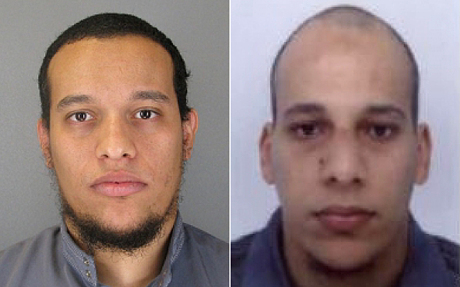What’s the relationship between the Internet and the surge of jihadist violence in France, Belgium and around the world? That’s the puzzle examined by Marc Sageman, a psychiatrist and former CIA officer whose contrarian views on terrorism are worth a careful look.
“Blaming the Internet for radicalization is really blaming any form of communication for radicalization,” cautions Sageman. “Mere exposure to wrong ideas can explain neither their adoption nor their power to lead people to . . . political violence.”
David Ignatius writes a twice-a-week foreign affairs column and contributes to the PostPartisan blog. View Archive
The Internet’s role for jihadists is something subtler — and similar to its effect on any other group, he argues. Online forums allow easier communications and logistics. But they also foster the decentralization and fragmentation that Sageman has described in his books “Leaderless Jihad” and “Understanding Terror Networks.”
“The dramatic increase in the number of Muslim foreign fighters in the Levant is mostly due to the large increase in the size of the online jihadi community,” he says in an interview. But he notes that the Internet “encourages . . . decentralization because of the egalitarianism it promotes among its users. It is difficult to impose discipline or enforce one’s orders on the Internet.”
The Internet’s role isn’t to radicalize people — that happens because of perceived injustice against one’s group and other factors. But once young people are motivated, the online forums encourage “spontaneously emerging independent homegrown attacks” beyond the control of top-down command structures such as al-Qaeda.
Sageman warns against what he calls the “alarmist bias” in U.S. intelligence reports and media coverage of terrorism. The recent attacks in Paris are an example: U.S. accounts have focused on the possibility of central direction from al-Qaeda’s affiliate in Yemen. This approach is “fueling a peculiar American hysteria on terrorism, which forces politicians to be responsive and show that they are tough on terrorism.” It would be better to look at local factors, such as street-gang and prison connections, as the French media have done, argues Sageman.
Research on terrorism has been stagnant in part because so much of the information has been classified. “We have a system of terrorism research in which intelligence analysts know everything but understand nothing, while academics understand everything but know nothing,” wrote Sageman last year in the journal Terrorism and Political Violence.
But research is broadening, thanks in part to the National Consortium for the Study of Terrorism and Responses to Terrorism at the University of Maryland. Its Web site lists 16 academic studies on the topic of “countering violent extremism” (the preferred term, these days) and 30 mostly completed studies of counterterrorism.
Topics of these academic studies range from curbing jihadist sympathies among Somali-American youths in Minneapolis to combating radicalization of Muslims in U.S. prisons to Muslim-American attitudes toward religious law (more non-Muslims say they’d like to live under religious law than do Muslims!).
Studying terrorism is obviously a growth industry in academia. The University of Maryland project features an unclassified Global Terrorism Database that includes information on more than 125,000 terrorist attacks since 1970. The scholarly studies aren’t going to stop any suicide bombers, but they will at least provide researchers with a more nuanced picture of the threat.
The core question for Sageman is why people become radicalized in the first place. In a forthcoming book, “The Turn to Political Violence,” he argues that it’s partly because militants see themselves as soldiers defending their communities. That’s why brothers Said and Cherif Kouachi wore military outfits when they attacked the Charlie Hebdo weekly, according to Sageman. “They self-identified as soldiers and tried to play the part as they imagine soldiers act.”
This sense of being embattled seems to be a crucial motivator. Sageman cites as factors in joining a terror network: “a perceived war on one’s in-group; moral outrage at some salient injustice against one’s in-group; disillusionment with nonviolent tactics; and polarization of debate.”
One takeaway from Sageman’s work is that governments and individuals need to be careful about unintentionally feeding the grievance narratives of Muslims around the world. When people are feeling insulted, it’s dangerous to insult them gratuitously again. That’s my problem with the Charlie Hebdo cover this week once again featuring the prophet Muhammad in what Muslims view as a derogatory way. Non-Muslims can say that Muslims shouldn’t be offended, but why rub an open wound?






















